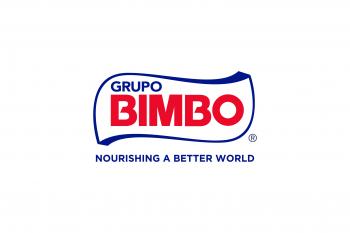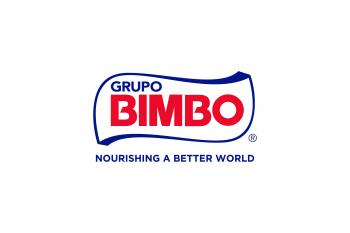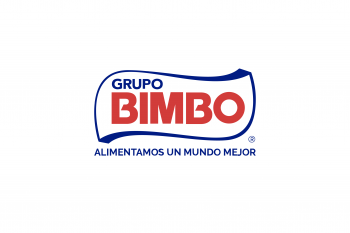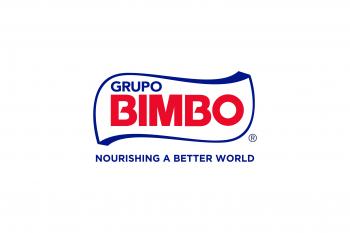Daniel Servitje in Milling and Baking News Part 2
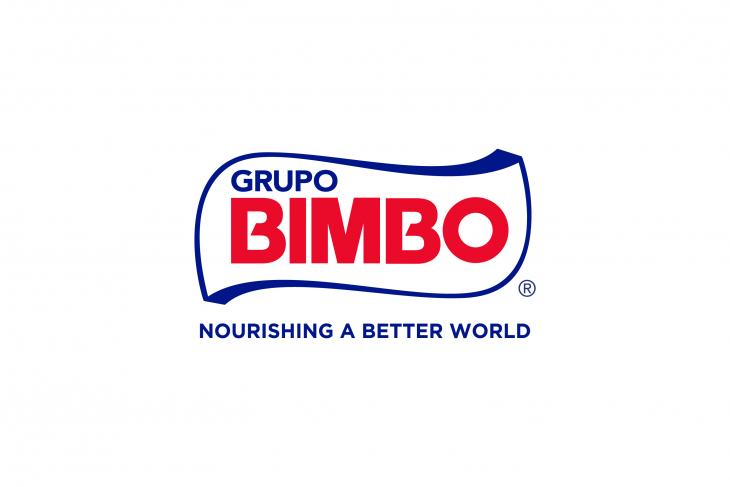
If we want to be an international company, it is important for us to be in Europe.
Daniel Servitje, Chief Executive Officer of Grupo Bimbo
Servitje looking for ‘seamless’ B.B.U. with Sara Lee integration
A “Seamless company” both in- eternally and in its interactions with customers, an “enriched culture” consistent with its corporate parent and a position as a low-cost operator are all elements of Daniel Servitje’s expectations for Bimbo Bakeries USA within three years. The chief executive of Grupo Bimbo S.A.B. de C.V., offered this vision and additional ambitions for B.B.U. as part of a wide ranging interview conducted with Milling & Baking News at Grupo Bimbo headquarters in Mexico City.
The interview was prompted by Grupo Bimbo’s acquisition of the North American fresh bakery business of Sara Lee Corp. First announced in November 2010, the acquisition was completed in November 2011. Bimbo continues working toward completing certain divestitures required as part of the regulatory approval process.
With the Sara Lee transaction, B.B.U. operates over 70 baking plants in 31 states with 13,000 sales routes (before divestitures). With a workforce numbering almost 28,000, the U.S. company’s annual sales will total $5.8 billion (pro forma). By purchasing Sara Lee, which operated 41 baking plants and 4,100 routes when the acquisition was first announced, B.B.U. confirmed its position as the largest baking company in the United States by a wide margin. Flowers Foods, Inc., the nation’s second largest wholesale baker, operates 41 baking plants and has annual sales of $2.6 billion (excluding Flowers’ recently announced acquisition of Lepage Bakeries, Inc., which adds three plants and annual sales of $166 million).
Commenting on plans announced to invest heavily in the company’s U.S. baking infrastructure, Mr. Servitje described Bimbo as taking necessary actions in commercial bak- ing that have been held back for years by lagging industry economics. “Gary (Prince, president of B.B.U.) from day one declared we intended to invest $1 billion in the next five years to renew manufacturing assets and strengthen our distribution capability,” Mr. Servitje said. “The reason is quite simple. The U.S. baking industry has many plants that are 40, 50, 60 or 70 years old. You can’t do much about them, because you can’t support much of these assets’ renewal. We see opportunities to focus on new priorities that can bring higher payback. We know we need to focus on becoming a low-cost baker because customers and consumers demand it more than ever.”
While committed to the billion-dollar spend, Mr. Servitje said Bimbo has no plans to mindlessly plunk the dollars into a series of new plants. To the contrary, he spelled out a thoughtful process aimed at maximizing returns.
“Our plans are not the same every- where,” he said. “In some instances it will be a new plant. In others, it will be better utilizing existing assets. In others, it’s replacing ovens. It’s an entire gamut of possibilities, which we won’t address automatically. We will analyze thoroughly, project-by-project.”
Asked about Bimbo’s aspirations five years into the future and beyond, Mr. Servitje redirected the question to the company’s current strategic objective (dating from 2010) to become “the best baking company in the world” by 2015. He said there is no confusion within the company that being the world’s largest baker equates to the world’s best baker.
“To become that, we need to change a lot of things within our company,” he said. “We may be the largest, but more important than size is our aspiration to understand our consumers better than anyone else and align with our customers so they see we provide the best value. We must be proactive — a company that does not rest on its laurels as it drives toward the forefront of its industry. That’s a huge challenge. I don’t know whether we will complete that vision within three years, but if not we will be working on it beyond 2015.”
“I hope by 2015 we are through with the integration of Sara Lee, and our company is seamless to our customers and ourselves. Also, that we have a single information technology system and an enriched culture, which is common to all of Bimbo. And, that we are a low-cost operator striving to provide the best value for customers.” In contrast to its purchases of Mrs Baird’s and the U.S. baking businesses of George Weston Ltd., B.B.U., in acquiring the Sara Lee business, was not purchasing a highly profitable The chronic difficulties Sara Lee business. To the contrary, Sara Lee experienced were reflected in the had struggled for a decade trying $709 million price for the baking to bring the fresh baking business to business, much less than the $2.5 a satisfactory level of profitability. The chronic difficulties Sara Lee business. To the contrary, Sara Lee experienced were reflected in the had struggled for a decade trying $709 million price for the baking to bring the fresh baking business to business, much less than the $2.5 a satisfactory level of profitability. billion paid by Bimbo in the 2009 purchase of the baked foods business of Weston. Bimbo financial results in the United States have been erratic over the last 15 years, a marked contrast to operations in Mexico where profit margins have been consistent and wide. The U.S. situation will change, Mr. Servitje said with confidence, predicting gains for the company in terms of margins and market share. “It will come as part of this in-vestment,” he said. “Definitely. Be- coming the best company means you are good at all parts of the value chain.”
“We want to be larger than today. We don’t know by how much. It isn’t an industry of high growth. It’s no growth in some years. We want to be efficient. We also believe the opportunities are huge in places where we are in our infancy. Growth is a major priority.” Among the paths to growth in the United States seen by Grupo Bimbo is a broadening of its portfolio of brands, an objective enhanced by the Sara Lee acquisition,” Mr. Servitje said.
“That’s why we have launched Sara Lee in the Northeast U.S.,” he said. “We also will take advantage of the Sara Lee distribution system’s strengths to provide service for B.B.U. brands in markets that have not had these products.
“Growth will also come with dedicated leadership at the local level, the ability to spot opportunities and by having national and large regional retailers served consistently by our teams. basis by our teams.”
“We may be the largest, but more important than size is our aspiration to understand our consumers better than anyone else and align with our customers so they see we provide the best value.”— Daniel Servitje, Grupo Bimbo S.A.B. de C.V.
Bimbo’s U.S. start was in tortillas, and even today the company is not limiting its U.S. business to baked foods. In Mexico, the company goes head to head with PepsiCo, Inc. in the salty snack business (sold mostly under Bimbo’s Barcel brand) and also is a manufacturer of cookies (Marinela) and confectionery products (Ricolino).
Many Bimbo products are sold in the United States through Bimbo’s Barcel USA division, headquartered in Dallas. “It’s mostly focused on the Hispanic segment,” Mr. Servitje said. “We’re reaching out and developing products to cover more segments as well.” MBN
— L. Joshua Sosland
Seeds for Bimbo U.S. emergence first planted in 1980´s
With The acquisitions in the 1990s of Pacific Pride Bakeries and Mrs Baird’s Bakeries, Grupo Bimbo S.A.B. de C.V. put the U.S. baking industry on notice that it intended to become a major player in U.S. baking. Years earlier, though, the company, and its current chief executive, were taking steps in the United States that provided a hint about what was to come.
The steps culminated in the November 2011 acquisition of the North American fresh baking business of Sara Lee Corp., reinforcing B.B.U.’s position as the largest wholesale baking company in the United States.It was in 1985 that Grupo Bimbo began exporting sweet baked goods under the Bimbo and Marinela brands to Mexican emigrants working in the United States, Mr. Servitje said. “In 1987, I graduated with an M.B.A. from Stanford and began working to open routes in Los Angeles,” he said. “We were operating around 40 routes there, and I spent several months trying to open new accounts in grocery stores.”In the years that followed, Grupo Bimbo acquired a number of small tortilla companies and built a tortilla plant, operating as Bimar Foods, based in Carrollton, Texas.
In 1996, the company acquired Pacific Pride of Escondido, Calif., its first venture into U.S. bread baking. Pacific Pride was the San Diego area’s largest independent baking company, producing white pan bread, white hearth bread, specialty bread and buns and rolls under the Sunbeam, Bohemian Hearth, Deli Breads, Holsum, Kellogg’s, Poulsbo, Town Talk and Heritage Grain brands. It was the 1998 acquisition of Mrs Baird’s Bakeries, a major regional baking company based in Fort Worth, Texas, that truly caught the attention of the U.S. baking industry.
“Since then, we’ve been patient, willing to take a long-term view of our U.S. business,” Mr. Servitje said. “Today, we have a great team led by Gary (Prince, president c.e.o. of B.B.U.). With persistence, investment and hard work from the U.S. team, we are right where we need to be.” While disciplined and guided by tradition and heritage, Bimbo is no slave to the past, Mr. Servitje said. Even the small tortilla purchases of the early 1990s would not have been considered in the company’s earlier years when expansion was achieved solely through organic growth. “For many years, Bimbo made no acquisitions,” Mr. Servitje said. “Then, things changed. Mrs Baird’s was a key opportunity to become an important player in a regional market, and we based our headquarters for many years in Fort Worth, Texas. In 2009, we acquired the U.S. business of George Weston Ltd., moved our headquarters to Horsham, Pa., and assumed our leadership position in baking in the United States. Now, with the acquisition of the Sara Lee baking business, B.B.U. is positioned to serve every market in America. Our U.S. associates are passionately committed to the success of our business.”
Asked to identify any particular disappointment along Bimbo’s road to becoming the largest wholesale baking company in the United States, Mr. Servitje did not offer any specific examples but readily acknowledged the company has encountered plenty of challenges.
“Every international initiative has been an adventure,” he said. “We know we will face multiple problems. We know that things won’t go exactly the way we envision. Now, we are humble and professional in how we approach each situation and recognized it is a learning experience.Going the international route is not a quick road to success. There will be issues, and we must be willing to see results in the long term”.
From modest beginnings Bimbo now at forefront of baking technology
As reflected in its commitment to $1 billion in capital spending in the United States in coming years, Grupo Bimbo S.A.B. de C.V. long has been known for its pursuit of industry-leading technology in its baking operations. Over the group’s history, though, the embrace of technology evolved slowly and often was spurred by external factors, observed Rosalio Rodriguez, chief of operations. Mr. Rodriguez, in a conversation before the Milling & Baking News interview of chief executive Daniel Servitje, noted that the original Bimbo baking plant in downtown Mexico City continues to operate today, 67 years after its opening.
“It has automated lines now, but the first big step we took was from manual to mechanical operations in the 1970s, before computer systems were installed,” he said. “It was a quantum leap Grupo Bimbo’s original plant in Mexico City, top, and the new Topeka, Kas., production facility. at the time.”
In the 1980s, another technological shift occurred, prompted in part by the Mexican government stimulus offering companies accelerated depreciation for equipment and systems.
“We updated many plants at the time,” Mr. Rodriguez said. “A major turning point was when we installed a bun line in Mexico for McDonald’s. Our older technology could not meet their quality needs, and the line was a major milestone for the company. It was very expensive, a tough decision.But it allowed us to sell to McDonald’s and was very successful. It prompted us to change all bun lines across the Bimbo system.”
By the 1990s, Bimbo was proactively looking for ways technology could help the company grow, Mr. Rodriguez said. Early in the decade lines were installed for the production of puff pastry and croissants. Later in the 1990s, a plant in Tijuana was built that gave the company he ability to monitor operations remotely with cameras. “The plant bakes bread, buns and other products,” Mr. Rodriguez said.
“The technology allows us to offer guidelines from Mexico City, but we don’t run it from headquarters. We are committed to the idea of local responsibility.”
Grupo Bimbo has a long history of intensive training of its baking plant operators, Mr. Rodriguez said.
“With automated lines, controls must be much more accurate,” he said. “Management for the maintenance and control of these lines requires extensive experience. Thousands of hours of training are provided for manufacturing and management, much of it at AIB International. We are probably their biggest client. For maintenance, we also train by ourselves, working with suppliers.” (A top official at AIB International confirmed to Milling & Baking News that Bimbo is indeed the largest client when it comes to training for baking). As the company has grown to 100-plus plants, Bimbo has made an effort to standardize equipment when possible, Mr. Rodriguez said. “When we choose a line, we will install it at several locations around the world,” he said. “Because of differing environments, for instance varying altitudes, we can’t standardize all our processes.”
Training for bakers at Grupo Bimbo often includes interim assignments for operations staff members to “broaden their perspective,” Mr. Rodriguez said.
“They may go to sales for a year to see that great product quality is not automatically the same as great availability,” he said. “If a product looks great when it leaves the line, it also needs to look great when it is delivered in the marketplace. The interim assignments and revolving positions also help assure no one gets too comfortable.”
